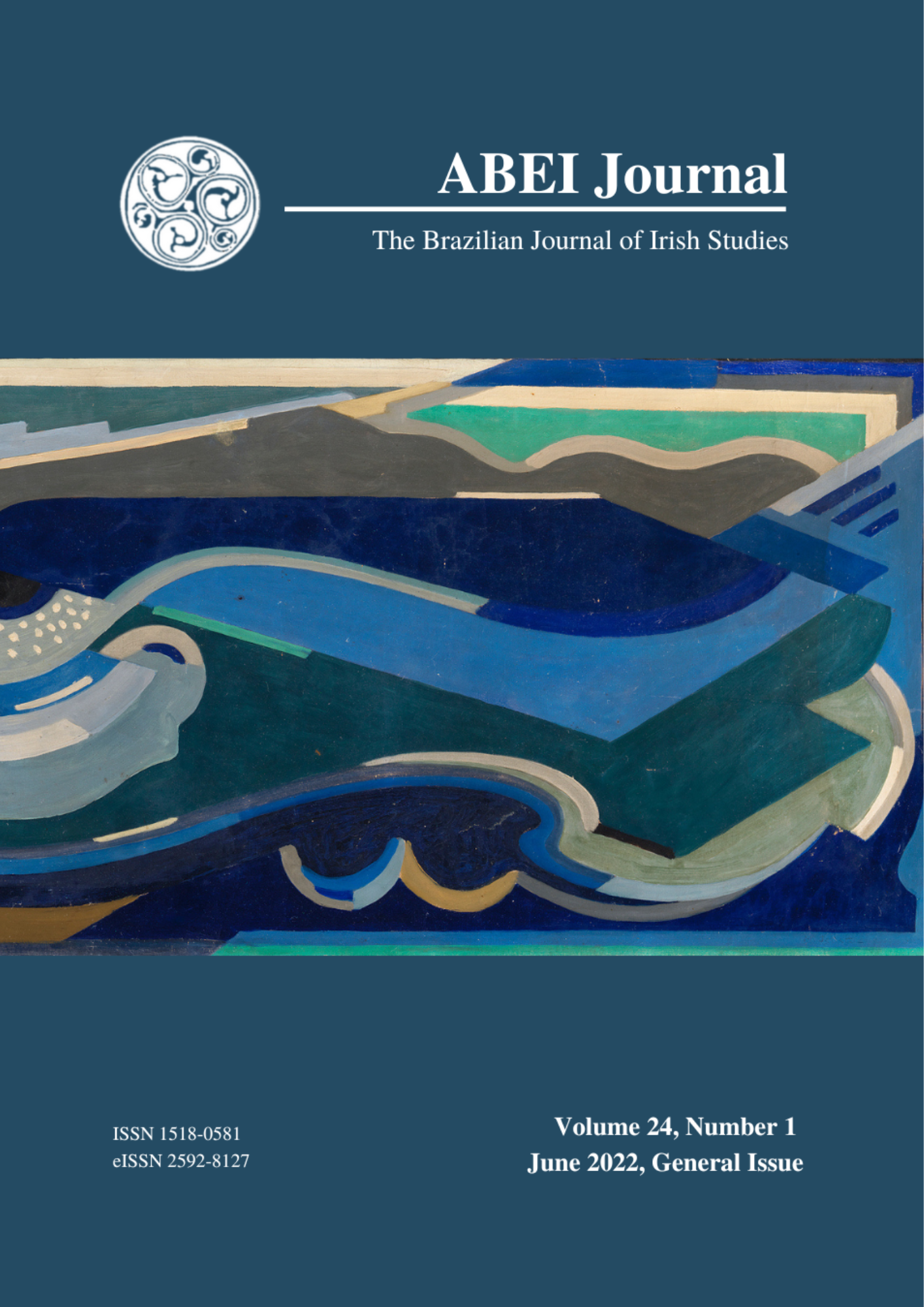Hy-Brazil, celtic land? A Brief Overview of the Brazilian Irish-Celtic Musical Scene with a Focus on the Rio de Janeiro Case
DOI:
https://doi.org/10.37389/abei.v24i1.198899Palabras clave:
Irish Music, Celtic Music, Ethnomusicology, Brazil , IrelandResumen
The present article charts the appearance and development of an Irish-Celtic (O’Flynn 2014) musical scene in Brazil, a small but tightly knit community of Brazilian amateur and professional musicians and music groups which constitutes a good example of what Mark Slobin named “affinity intercultures” (Slobin 1987). From an ethnomusicological perspective, it seeks to provide a portrait of such social and musical phenomenon based on a tripartite approach: 1) the discussion of international literature on the globalization of Irish traditional music as Celtic music around the turn of the Celtic Tiger period (Williams 2010) and the impacts of such process on Brazil; 2) the presentation and analysis of the results of an online survey conducted in the main Facebook community connected to the scene in order to characterize its main sociodemographic and musical characteristics; 3) the ethnographic description of the Rio de Janeiro chapter of such music scene based on its main musical event, the monthly session known as “Irish Session Rio.”
Referencias
Agnew, Vanessa. History’s affective turn: historical reenactment and its work in the present. In: Rethinking History, London, Routledge, vol. 11, n. 3, pp. 299-312, September 2007.
Mccoy, Narelle. The rise of the Celtic-cyber diaspora: the influence of the “new age” on internet pagan communities and the dissemination of “Celtic” music. In: Westion, Donna; Andy Bnnett (eds.). Pop pagans: paganism and popular music. London, Routledge, 2014, pp. 176-188.
Mendívil, Julio. “Lima es muchas Limas”: primeras reflexiones para una cartografía musical de Lima a principios del siglo veintiuno. In: Romero, Raul, R. (ed.). Música popular y sociedad en el Perú contemporáneo. Lima, Instituto de Etnomusicología de la Pontificia Universidad Católica del Perú, 2015, pp. 17-46.
Motherway, Susan H. The Globalization of Irish Traditional Song Performance. Surrey, Ashgate Publishing Ltd, 2013.
O’Connor, Nuala. Bringing it All Back Home: The Influence of Irish Music. Dublin, Merlin Publishing, 2001.
O’Flynn, John. National identity and music in transition: issues of authenticity in a global setting. In: Biddle, Ian; Vanessa Knights (orgs.). Music, national identity, and the politics of location: between the global and the local. Surrey, Ashgate Publishing Ltd., 2007, pp. 19-38.
O’Flynn, John. Kalfou Danjere? Interpreting irish-celtic music. In: Fitzgerald, Mark; John O’Flynn (ed.). Music and identity in Ireland and beyond. Surrey, Ashgate Publishing Ltd, 2014.
Slobin, Mark. Subcultural Sounds: Micromusics of the West. Middletown, Wesleyan University Press, 1987.
O’Flynn, John. Folk Music: A Short Introduction. Oxford, Oxford University Press, 2011.
Stokes, Martin. Ethnicity, Identity and the Musical Construction of Place. New York, Berg, 1994.
Symon, Peter. From Blas to Bothy culture: the musical re-making of Celtic culture in a Hebridean festival. In: David C. Harvey, Rhys Jones, Neil McInroy and Christine Milligan (eds), Celtic Geographies: Old Cultures, New Times. London, Routledge, 2002, pp. 192-206.
Williams, Sean. Focus: irish traditional music. New York, EUA, Routledge, 2010.
Wilson, Thomas; Hastings Donna. The Anthropology of Ireland. London, Bloomsbury Publishing, 2006.
Descargas
Publicado
Número
Sección
Licencia
Derechos de autor 2022 Caetano Santos

Esta obra está bajo una licencia internacional Creative Commons Atribución-NoComercial 4.0.


